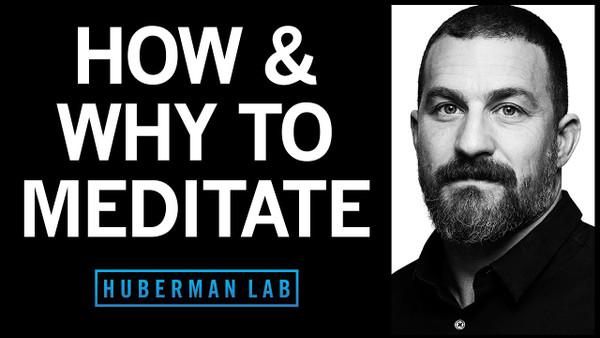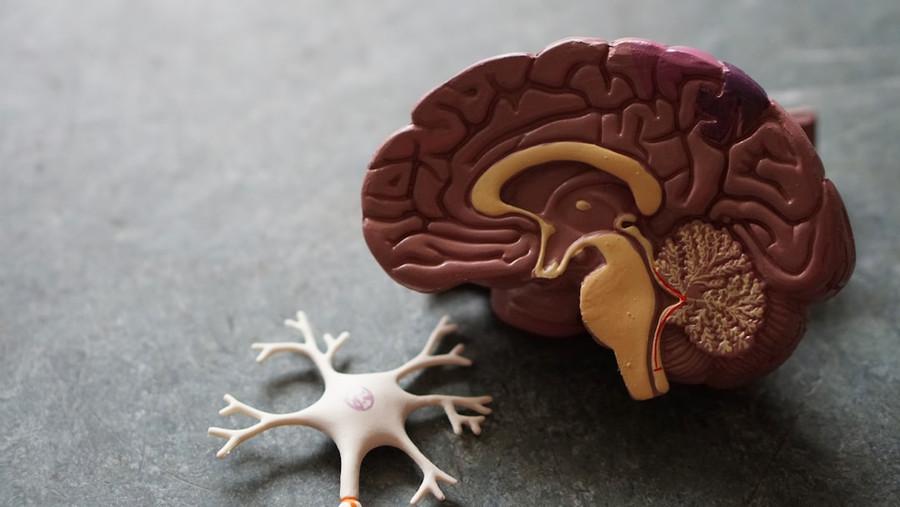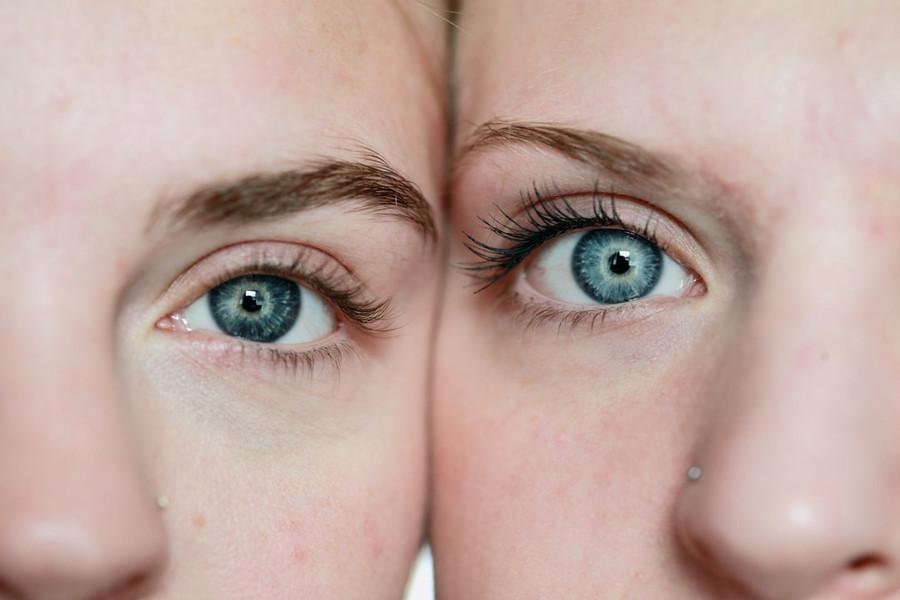How Meditation Works & Science-Based Effective Meditations | Huberman Lab Podcast #96
Curated from: Andrew Huberman
Ideas, facts & insights covering these topics:
12 ideas
·23.5K reads
114
2
Explore the World's Best Ideas
Join today and uncover 100+ curated journeys from 50+ topics. Unlock access to our mobile app with extensive features.
Benefits Of Meditation
- The more you meditate, the less you need to meditate because you get better at it and therefore can switch to the desired brain traits more easily and faster.
- It enhances sleep and focus and improves your mood.
- It reduces (the risk for) cancer, pain and ADHD.
226
2.92K reads
Important Brain Areas
Left Dorsolateral Prefrontal Cortex (DLPFC): When it is active we are great at interpreting emotions and signals from the body such as (dis)comfort and make good decisions based on them.
Anterior Cingulate Cortex (ACC): It interprets bodily signals such as heart beating.
Insular Cortex: It interprets signals from our brain, body and outside of us.
213
2.46K reads
What Is Mindfulness?
It means being present to what's happening internally while ignoring what's happening externally. It make us present to bodily sensations, thoughts and feelings as well as breathing.
227
2.39K reads
Interoception & Exteroception
Interoception = what's inside the body
Exteroception = what's outside the body
- You can test your degree of intero- and exteroception by counting your heartbeats without putting your fingers anywhere just by feeling inside your body.
- Interoception isn't always good as it can lead to more anxiety and depression.
- Too much exteroception can lead to being out of touch with your body.
- As they both have negative side effects, we place no value on them, balance is key.
221
2.18K reads
Ways Of Meditating
Meditation for Interoception: Stopping (getting out of moving) & closing your eyes helps you to focus more on your skin and what's inside your body as your ACC and Insula become more active. So this leads to more interoception as exteroception is turned off due to no vision.
Meditation for exteroception: Besides this common way of meditating, there are also meditation practices that focus on exteroception such as walking meditation where you focus on what's outside.
222
2.07K reads
The Best Practice For You
You should do a meditation practice that goes against what you normally do. This will lead to more neuroplasticity (your brain's ability to change and adapt).
- If you tend to have more interoception, you should do a meditation practice to improve your exteroception.
- If you tend to have more exteroception, you should do a meditation practice to improve your interoception.
226
1.94K reads
Perception
Sensation is everything that is being detected by a sensory receptor.
Preception is every sensation that is being interpreted, consciously experienced and organized, so it is everything that is being perceived.
- Two spotlights of perception can be split or emerged into one (for example focusing on one tree or on the whole landscape).
- It can be intensified (can be noticed easily) or dimmed (diffuse). This is also known as fineness of perception.
- This is possible to do with the DLPFC.
198
1.72K reads
The Cause Of Unhappiness
Default Mode Network = collection of brain areas that are active when you are not very focused on one task or activity; it generates mind wandering
"A wandering mind is an unhappy mind": A study showed that minds wander a lot during all activities except making love. We are less happy when our mind is wandering than when it isn't. What we are thinking is more important than what we are doing.
Because of the mismatch between being in activity and having our mind elsewhere, we are unhappy. That's why people are often unhappy even if they think good thoughts. Be fully engaged in what you are doing!
261
1.69K reads
Basics Of Meditation
Meditation helps you to focus on what is going on in the moment and reduces mind wandering.
The more you refocus during meditation, the better and more effective it is as it leads to more neuroplasticity. Refocus is better than focus (because being focused means that it is too easy for you).
A three to five minute meditation practice is enough as you get all the benefits from it. It is also easier to do and can therefore be done more often. Consistency is important!
229
1.57K reads
The Third Eye
The pineal gland is often referred to as the third eye. It releases melatonin and responds to light. But in us humans, your pineal gland sits deep and is not the third eye that is being referred to in meditation.
In the brain are no sensory neurons. When focusing on the brain (or during third eye meditation on the "third eye"), your thoughts become more dominant.
We can only stop thinking by perceiving something else.
By focusing on breathing, we focus on interoception. The more difficult the breathing exercise is, the more interoception it takes.
207
1.54K reads
Ideal Mental Health
Dissociation: It is often associated with trauma and is considered as the removal of bodily awarness. It is the opposite of interoception.
The ideal mental health state looks like this: We should be able to change between the states of interoception and exteroception as well as interoception and dissociation. The goal is to deliberately control the degree and timing of these shifts. Meditation helps with this!
214
1.49K reads
Space-Time-Bridging
This meditation practice balances everything, goes through all locations and practices placing focus on the spectrum.
- Close your eyes, focus on your third eye center or breathing for 3 breaths (interoception)
- Open your eyes and focus on the surface of your body: Look at your hand & focus on breathing for 3 breaths: (50% intero-, 50% exteroception)
- Focus on a location 10-15 ft away & on breathing for 3 breaths
- Focus on a further distance & your breathing for 3 breaths
- Focus on being a small body in this huge universe & on breathing for 3 breaths
- Go back to interoception (step 1) if you want to
295
1.55K reads
IDEAS CURATED BY
CURATOR'S NOTE
Dr. Andrew Huberman breaks down the science behind meditation and shares what makes a good meditation practice.
“
Similar ideas
13 ideas
5 ideas
Tools to Improve Your Focus & Concentration
Huberman Lab
Read & Learn
20x Faster
without
deepstash
with
deepstash
with
deepstash
Personalized microlearning
—
100+ Learning Journeys
—
Access to 200,000+ ideas
—
Access to the mobile app
—
Unlimited idea saving
—
—
Unlimited history
—
—
Unlimited listening to ideas
—
—
Downloading & offline access
—
—
Supercharge your mind with one idea per day
Enter your email and spend 1 minute every day to learn something new.
I agree to receive email updates












